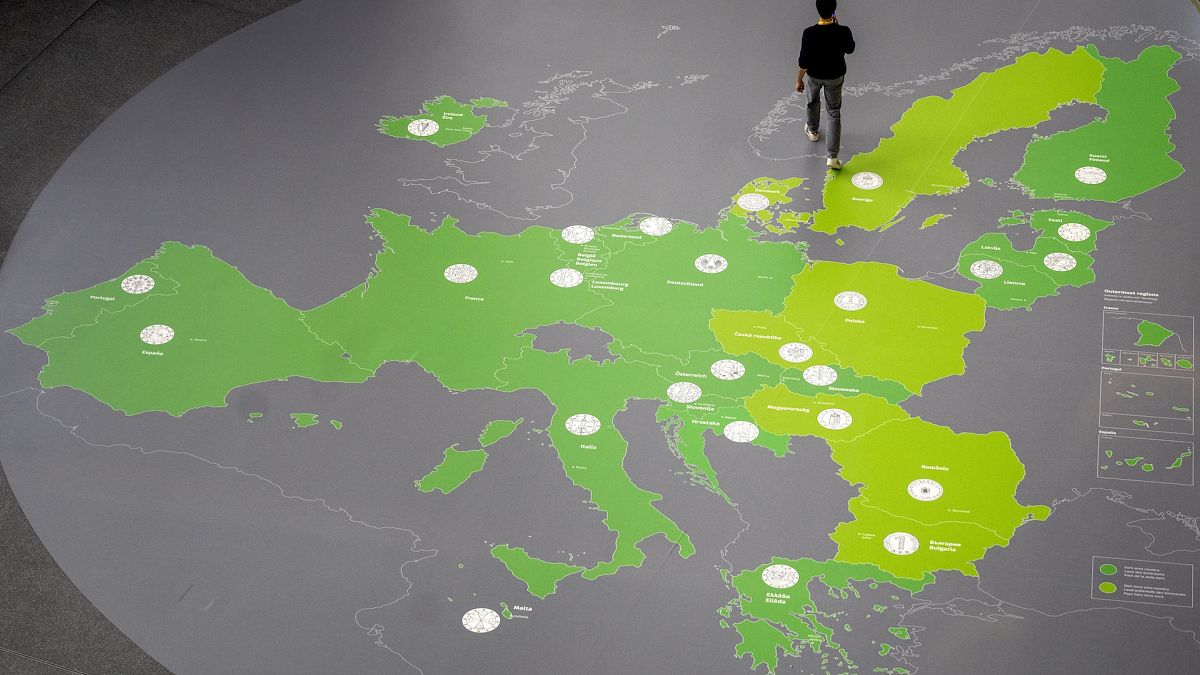What will the UN’s Global Digital Compact mean for AI and tech

The UN’s Summit of the Future has put tech and AI governance high on the multinational body’s global agenda.
The United Nations (UN) has published the first comprehensive global framework for digital cooperation and artificial intelligence (AI) governance.
It comes as part of the UN General Assembly’s “Pact for the Future” announced on Sunday, which aims to be a “step-change towards more effective, inclusive, networked multilateralism,” according to UN Secretary-General Antonio Guterres.
The Global Digital Compact, which is annexed to the Pact for the Future and was adopted without a vote, commits the world’s key players to discussing how to govern AI and the responsibilities of tech companies.
Here is a breakdown of what the 66-page document and 56 broad actions mean for technology.
On AI
The Digital Compact urges the governing of AI with a roadmap that includes an International Scientific Panel and a Global Policy Dialogue on AI.
For tech companies, the Compact calls on them to enhance the transparency and accountability of their systems, which includes content moderation and handling of user’s personal data.
It also urges tech companies to develop solutions and publicly communicate actions to counter potential harms – such as hate speech and discrimination – from AI content.
However, it does not specify if companies should be transparent on the data sets that AI is trained on, but does say any measures should include the incorporation of safeguards into AI model training processes, identification of AI-generated material, authenticity certification for content, and origins, labelling, watermarking, and other techniques.
The document also calls for open source and open innovation technologies. It means that tech companies’ designs would be publicly available. It is unclear how this would work with companies such as OpenAI, which are closed source companies.
The open source requirement does not just apply to AI, and would be used to build know-how for the UN’s Sustainable Development Goals, especially in developing countries.
On the Internet and digital divide
The Compact stated that it is committed to connecting everyone to the Internet and recognises that this would require increased financial investments in developing countries from governments and other stakeholders, in particular the private sector.
This would include satellites and local network initiatives, that provide safe and secure network coverage to all areas, including rural, remote, and “hard-to-reach” areas.
As well as getting everyone online, the Compact also outlines an ambition to establish a national digital skills strategy, which includes education for the digital age, and increase affordable digital tech platforms.
“Our aim is maximum coverage of basic digital skills for as many as possible, while also advancing intermediate or advanced digital skill,” the document states.
It also aims to close the digital divides and encourage North-South, South-South, and triangular cooperation, including among universities, research institutes, and the private sector, to accelerate digital knowledge development and access to research capacity.
There is a pledge to support women and girls’ participation in STEM (science, technology, engineering and mathematics) subjects.
On tech companies and protecting children
The Compact states there is an urgent need to counter and address all forms of violence, including sexual and gender-based violence, which occurs through or is “amplified by the use of technology”.
It also urges action against hate speech and discrimination, misinformation and disinformation, cyberbullying, and child sexual exploitation and abuse.
The document comes as social media platforms come under major pressure to protect young users on social media.
In January, Meta boss Mark Zuckerberg apologised before US Congress to families of children who had been abused or sexually exploited on his platforms.
The Compact also calls for technology and social media companies to establish safe and secure reporting mechanisms for users to report potential policy violations, including special reporting mechanisms adapted to children and persons with disabilities.
Finally, the UN hopes social media and tech companies will enhance the transparency and accountability of their systems, including terms of service, content moderation and recommendation algorithms, and handling of users’ personal data in local languages.
Will it work?
While the UN is placing a global commitment to data governance on its agenda, the Compact and Pact are both non-binding, meaning it is not clear if it will be implemented by UN member states.
The President of the General Assembly, Philémon Yunji noted that the Pact would “lay the foundations for a sustainable, just, and peaceful global order – for all peoples and nations”.
World News || Latest News || U.S. News
Source link



